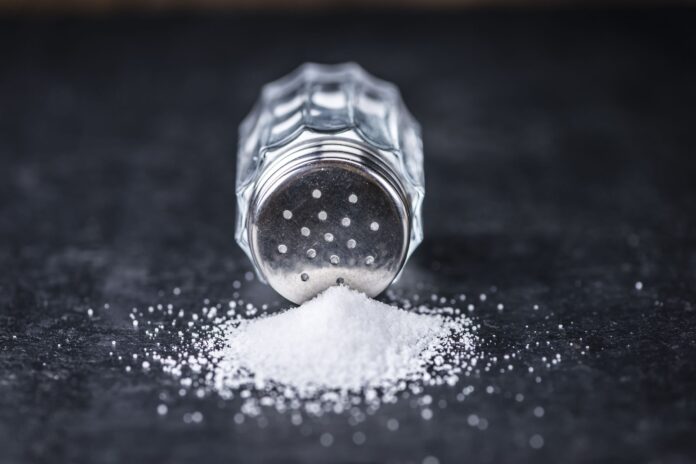Excess salt in the diet can have several negative impacts beyond just increasing blood pressure (BP). Here’s a detailed explanation of how high salt intake affects health, particularly focusing on gut health and why it’s essential to reduce its quantity:
1. Impact on Blood Pressure
- High Blood Pressure (Hypertension): Consuming too much salt leads to water retention, which increases the volume of blood in the vessels. This elevated volume causes the heart to work harder, resulting in higher blood pressure.
- Heart Health Risks: Long-term high blood pressure increases the risk of heart diseases, stroke, and other cardiovascular conditions.
2. Negative Effects on Gut Health
- Disruption of Gut Microbiota: Salt can disturb the balance of healthy gut bacteria, which are crucial for digestion, immune function, and even mental health. Studies have shown that high salt intake can reduce the diversity of beneficial bacteria, leading to gut dysbiosis (imbalance in gut microbiota).
- Increased Risk of Inflammation: When gut health is compromised, it can trigger inflammation in the digestive tract, contributing to conditions like inflammatory bowel disease (IBD). This can also lead to increased intestinal permeability, often referred to as “leaky gut.”
- Weakened Immune Response: The gut microbiome plays a vital role in supporting the immune system. An imbalance caused by too much salt can weaken the immune response, making the body more susceptible to infections and other health problems.
3. Kidney Health
- Excess Salt Strains Kidneys: Kidneys filter out excess salt from the body. Over time, a high salt intake can overload the kidneys, leading to reduced function or chronic kidney disease. Salt also promotes calcium excretion, which can contribute to the formation of kidney stones.
4. Water Retention and Bloating
- Fluid Retention: High salt intake causes the body to retain excess water, leading to bloating and swelling, particularly in the face, hands, and feet. This is uncomfortable and can make you feel sluggish.
5. Bone Health
- Calcium Loss: High salt intake can increase calcium loss through urine. If not balanced with adequate calcium intake, this can weaken bones over time, increasing the risk of osteoporosis.
6. Recommended Salt Intake
- The World Health Organization (WHO) recommends a maximum of 5 grams (about 1 teaspoon) of salt per day. Reducing salt intake to this level can have immediate and long-term health benefits.
7. Tips to Reduce Salt in the Diet
- Use Herbs and Spices: Replace salt with herbs, spices, lemon juice, or vinegar to enhance flavor without adding extra sodium.
- Limit Processed Foods: Processed foods like chips, canned soups, and sauces are high in sodium. Try to opt for fresh, whole foods instead.
- Check Labels: When buying packaged foods, check the sodium content and choose low-sodium options whenever possible.
- Gradual Reduction: Gradually reduce the amount of salt you use in cooking and at the table. Over time, your taste buds will adjust, and you’ll become more sensitive to salt.
Conclusion
Excessive salt intake doesn’t just raise blood pressure; it can significantly harm your gut health by disrupting your gut microbiota and increasing inflammation. By reducing salt in your diet, you can protect your gut, improve cardiovascular health, and reduce the risk of long-term complications. Making small, gradual changes can lead to better overall health and well-being.



